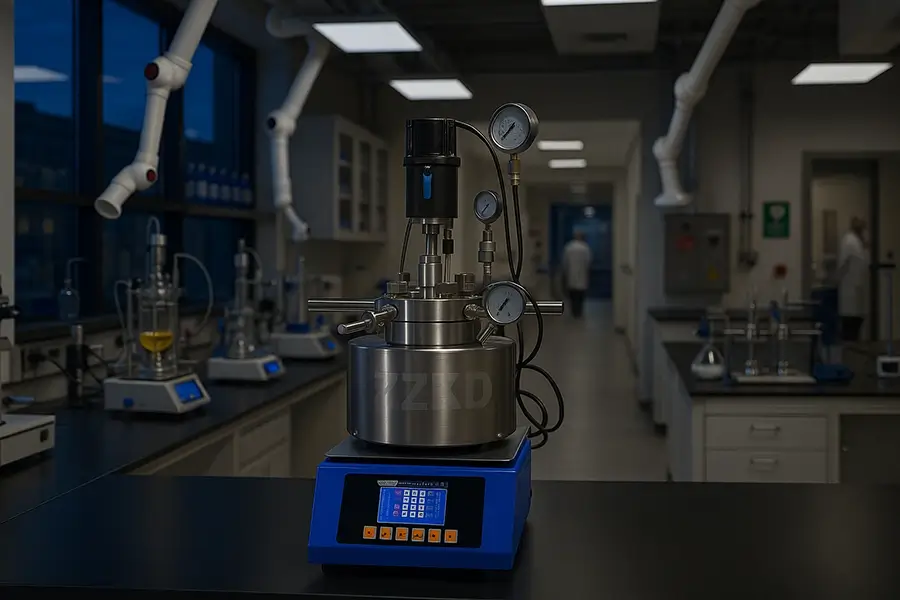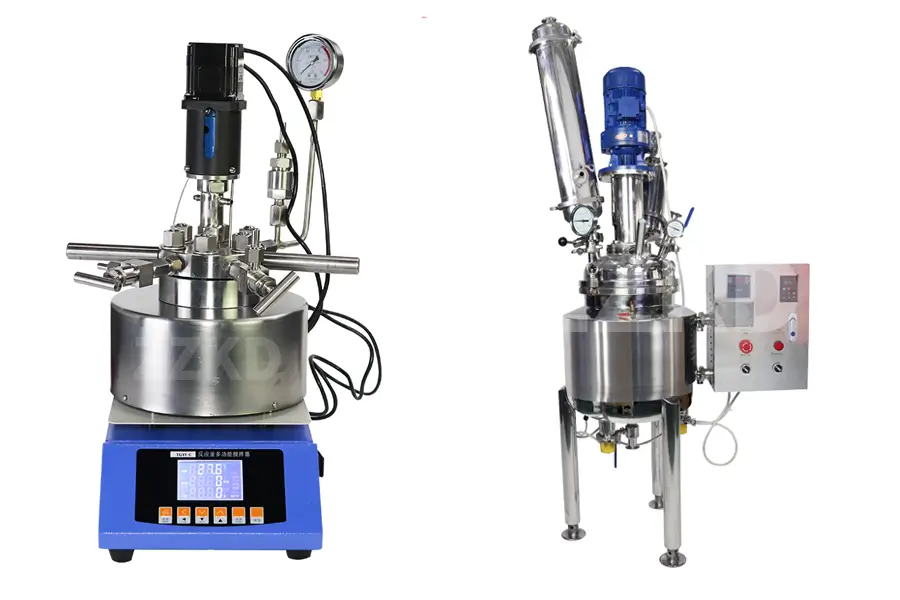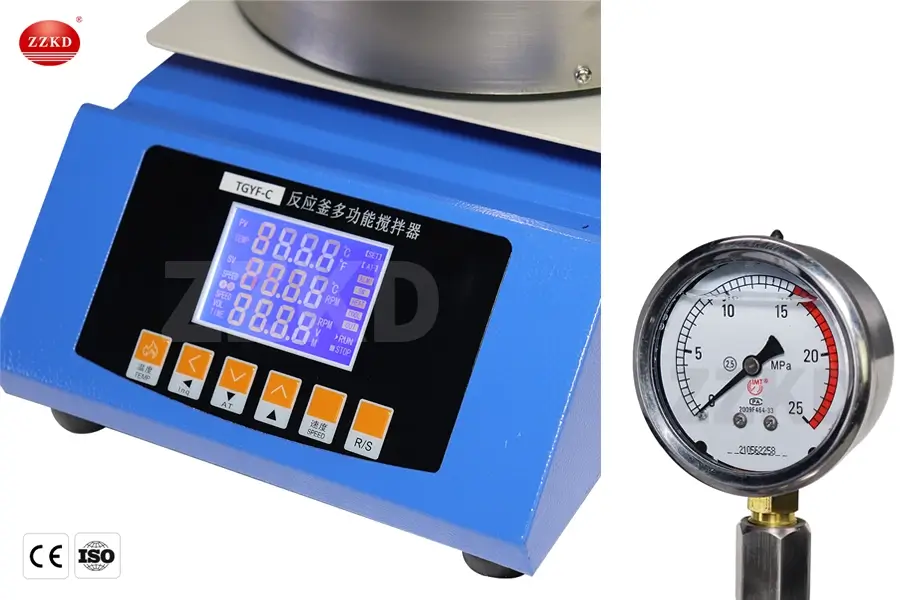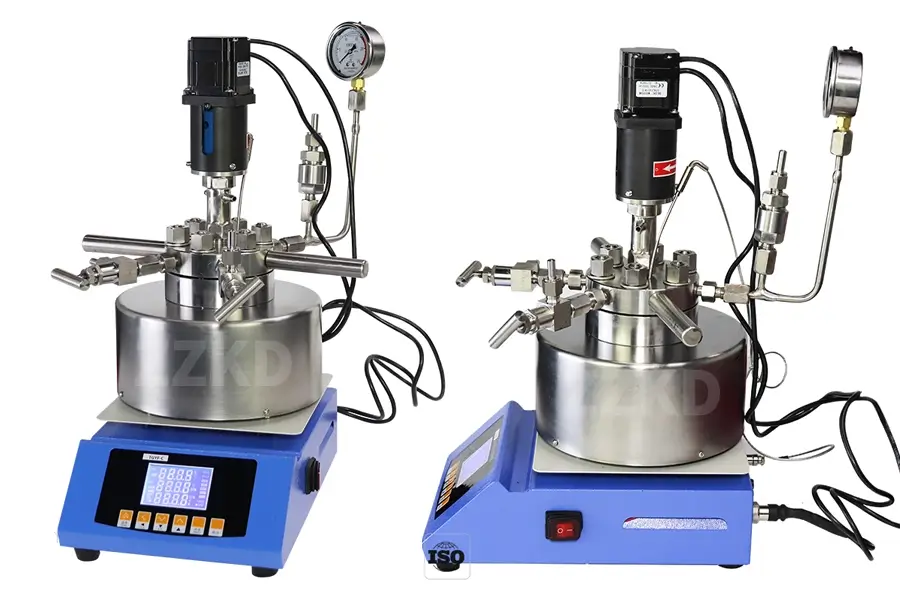What Do I Need to Know About Choosing the Right Bench Top Reactor?
Struggling to find the perfect reactor for your lab? Feeling overwhelmed by options and technical jargon? You want equipment that boosts your research, not complicates it.
Choosing the right bench top reactor means matching its material, size, and features to your specific chemical or biological processes, ensuring efficiency, safety, and reliable results for your experiments.

As a manufacturer with over 16 years of experience, I've seen how crucial the right equipment is. We've helped thousands, from university labs to large pharmaceutical companies, find their ideal setup. This guide will help you understand what to look for, so you can choose with confidence. Let's explore what makes a bench top reactor a key part of modern labs.
What Exactly is a Bench Top Reactor and Why Might My Lab Need One?
Is your current lab setup limiting your experiments? Are you doing reactions in standard glassware that isn't quite up to the task? A dedicated reactor might be the solution.
A bench top reactor is a compact, controlled system designed for chemical or biological reactions on a laboratory scale, offering precise control over temperature, mixing, and pressure for reproducible results.

Think of a bench top reactor as a mini-version of the large reactors used in industrial plants, but designed to fit right on your lab bench. My journey into manufacturing these started because I saw so many researchers struggling with makeshift setups. They needed better control and more reliable equipment for their experiments. A bench top reactor provides this controlled environment. You can heat, cool, stir, and maintain specific conditions with much greater accuracy than with basic flasks and beakers. This is super important when you're developing new chemical compounds, testing biological processes, or even for teaching purposes in universities. It helps you get consistent results, which is key for any scientific work. These reactors are not just for complex chemistry; they are also used for simple things like mixing solutions thoroughly or maintaining a specific temperature for a long time. Their versatility makes them a valuable tool in many different kinds of labs, from small academic research groups to larger industrial R&D departments. We focus on making them easy to use and robust for daily lab work.
Glass, Stainless Steel, or High Pressure: Which Bench Top Reactor Suits My Experiments Best?
Confused about whether glass, stainless steel, or a high-pressure system is your best bet? Choosing the wrong material can ruin samples or even be unsafe. Let's clarify.
Select a glass reactor for visibility and acid resistance, a stainless steel reactor for durability and higher pressures/temperatures, and a high pressure reactor for reactions requiring extreme conditions.

Choosing the reactor material is probably one of the first big decisions you'll make. It really depends on what you're planning to do in your lab.
Glass Reactors
I often recommend glass reactors to labs where seeing the reaction is important. Think about crystallization processes or when you need to monitor color changes or phase separations. Our jacketed glass reactors are great for this. They are also very good for reactions involving acids because glass is very resistant to corrosion. However, glass is fragile, and it can't handle very high pressures or temperatures. For general lab synthesis, R&D, and teaching, a 10L glass reactor can be a very versatile choice, though we offer sizes from 1L up to 100L and more.
Stainless Steel Reactors
Now, if you need something tougher, a stainless steel reactor is the way to go. These can handle much higher pressures and temperatures than glass. They are also more durable, so they are good for pilot plants or when you're working with more demanding chemical processes. We make stainless steel reactors that are used in pharmaceutical production for making active ingredients, or in the food industry for extractions. The downside is you can't see inside, but you can add viewing ports if needed. They are also great for larger volumes and when you need robust construction for long-term, repeated use.
High-Pressure Reactors
Then there are high-pressure reactors. These are specialized pieces of equipment. If your research involves hydrogenation, polymerization, or catalysis under very high pressures, this is what you need. They come with advanced safety features because working at high pressure can be risky. We build these with very strong materials and precise controls to ensure they operate safely. These are often found in advanced research institutions and specialized chemical plants. Choosing between these materials is key, and we are always happy to discuss specific application needs with our clients to guide them.
What Essential Features Should I Prioritize When Selecting a Bench Top Reactor?
Worried you'll overlook a critical feature when buying? With so many options, it's easy to get sidetracked by bells and whistles you don't actually need. Let's focus on what truly matters.
Prioritize material compatibility, appropriate volume, precise temperature and stirring control, pressure rating suitable for your reactions, and essential safety features when selecting a bench top reactor.

Once you've thought about the material, there are other important features to consider. It's like buying a car; you need to think about the engine, the safety features, and how comfortable it is to use.
Volume and Capacity
First, what size do you need? Bench top reactors can range from very small, like 500mL or 1L for basic research, up to 50L or even 100L that might still fit on a reinforced bench or a floor stand in a lab. Think about your typical batch size. It's often better to get a slightly larger reactor than you think you need, as your requirements might grow. We offer a wide range, ensuring you can scale your experiments.
Temperature and Stirring Control
Precise control is why you're getting a reactor. Good temperature control is vital. This usually means a jacketed vessel connected to a heater/chiller unit. You need to be able to heat and cool accurately and maintain a stable temperature. Stirring is also key. You'll want a system that offers a good range of stirring speeds and different stirrer designs for various viscosities and mixing needs. Some reactions, like those in a crystallization reactor, need very gentle and precise stirring.
Pressure Rating and Safety
Always check the maximum pressure and temperature ratings and make sure they are well above what your experiments require. Safety features are non-negotiable. Look for things like pressure relief valves, burst discs, and emergency shutdown systems, especially for high-pressure reactors. Our designs always incorporate these, as safety is our top priority. Also, consider ease of cleaning. A reactor that's hard to clean can lead to contamination and waste a lot of your time. Ports for adding reagents, taking samples, or inserting sensors are also important for practical use.
How Can I Make Sure I'm Using My Bench Top Reactor Safely and Effectively?
Concerned about operating new, complex equipment safely? Effective use goes beyond just pressing start; it's about understanding your system and maintaining it properly for reliable results.
Ensure safe and effective bench top reactor use by always following manufacturer guidelines, performing regular maintenance, using appropriate personal protective equipment, and thoroughly training all users.

Having the right reactor is just the first step. Using it safely and getting the best results from it is an ongoing process. I've learned over the years that proper training and good lab practices are just as important as the equipment itself.
Understanding Your Equipment
First, really get to know your specific reactor model. Read the manual thoroughly. We provide detailed manuals and often offer training because we want you to be confident. Understand all its parts, how they work together, and what the limits are for temperature, pressure, and chemical compatibility. Never try to push the equipment beyond its specified limits. For example, don't try to use a glass reactor for a high-pressure reaction it's not designed for.
Routine Checks and Maintenance
Regular checks are vital. Before each run, inspect glassware for any cracks or chips. Check seals and connections to make sure they are tight and in good condition. We always advise our customers to keep a logbook for each reactor, noting its usage, any issues, and maintenance performed. This helps spot problems early. Simple things like cleaning the reactor properly after each use prevent buildup and cross-contamination, which can affect your future experiments. We also offer service plans and spare parts to keep your equipment running smoothly for years.
Safe Operating Procedures
Always use the correct Personal Protective Equipment (PPE) – lab coats, safety glasses, gloves are a minimum. If you're working with hazardous materials or high pressures, you might need more specialized PPE. Make sure everyone who uses the reactor is trained not just on how to operate it, but also on emergency procedures. What do you do if there's a leak or if the pressure suddenly rises? Having clear procedures and practicing them can make a huge difference. We design our systems with safety interlocks, but user vigilance is always the most important safety feature.
Conclusion
Choosing and using a bench top reactor wisely helps your lab work better and safer. Match the reactor to your needs for great results.
